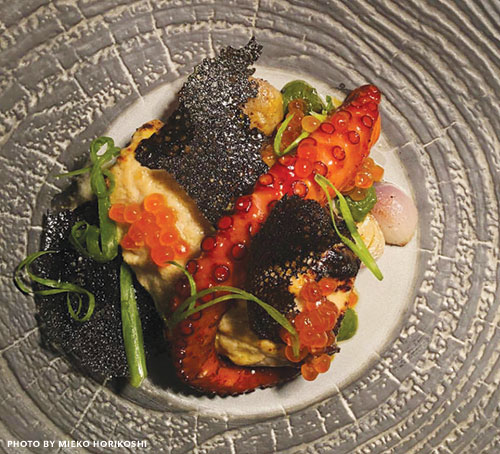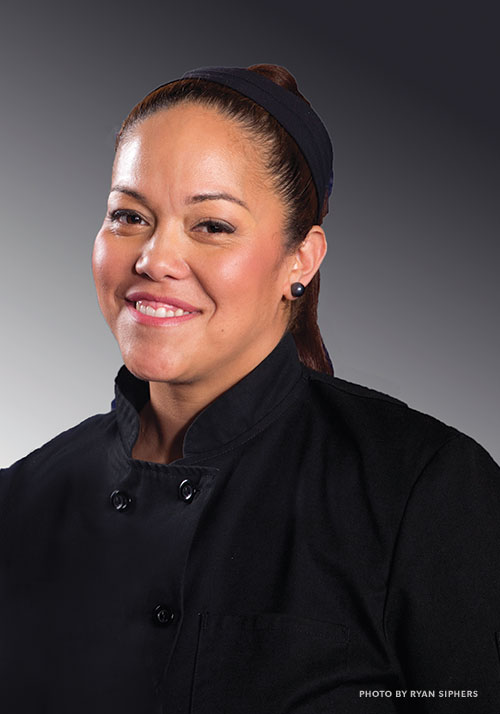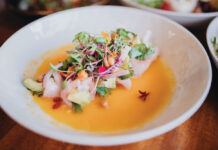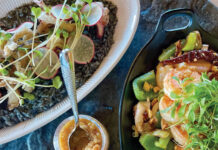Story by Becky Speere | Photography by Mieko Horikoshi

In 1986, I made a career change from the medical field to culinary, where my passion lay. But at my first restaurant job, the chef said, “No women on the hot line.” It was typical of the time for women to be relegated to the cold pantry—plating salads, cold appetizers and desserts—and after months of dealing with that discrimination, I quit and got a job as sous chef at a small French restaurant in Lahaina, where I was able to work every station, including the hot line. Seven years later, in 1994, I opened my own restaurant, Pauwela Café in Ha‘ikū.
Although men still dominate the top chef spots, we’re seeing more signs of parity. Over ten years ago, when a group of prominent Maui chefs convened at my home in Huelo to plan Maui Ag Fest’s first chef-collaboration dinner, not a woman chef was among them. Today the number of female chefs in Maui’s professional kitchens has grown to double digits. (Women also make up 45 percent of the 2019 student population at the UH–Maui College Culinary Arts Program.)

I meet with three of Maui’s outstanding wāhine chefs, whose passion and perseverance are setting the stage for other women in the kitchen: Kaulani Akina, sous chef at Nick’s Fishmarket Restaurant; Abby Ferrer, chef de cuisine at Star Noodle; and Tanya Kaina Doyle, sous chef at The Ritz-Carlton, Kapalua’s The Banyan Tree, owner of Lala Sweets, and chef/owner of All Kaina Grindz food truck.
I ask, “What challenges have you overcome as a woman chef in a managerial position?”
“It’s a part of the culinary environment that cooks will always challenge you, no matter what your position,” says Abby. “You have to prove your worth and place in the kitchen. You have to develop a tough skin and strong mental attitude.”
The youngest of the three, Kau says, “Although I’m working in a time when women are more prevalent in professional kitchens, as a chef I still face some challenges in this career path. In the beginning, I felt like I needed to work harder and faster than the boys to prove that I belonged in the kitchen.” She smiles and admits, “I actually started going to the gym to lift weights to get stronger, since I would lift things at work that were probably a little too heavy and unsafe for me. It’s a stigma that women are not built for kitchen careers. I try hard to make sure no one can say that I’m the weakest link on the team, [and back that] up with a strong work ethic.”





